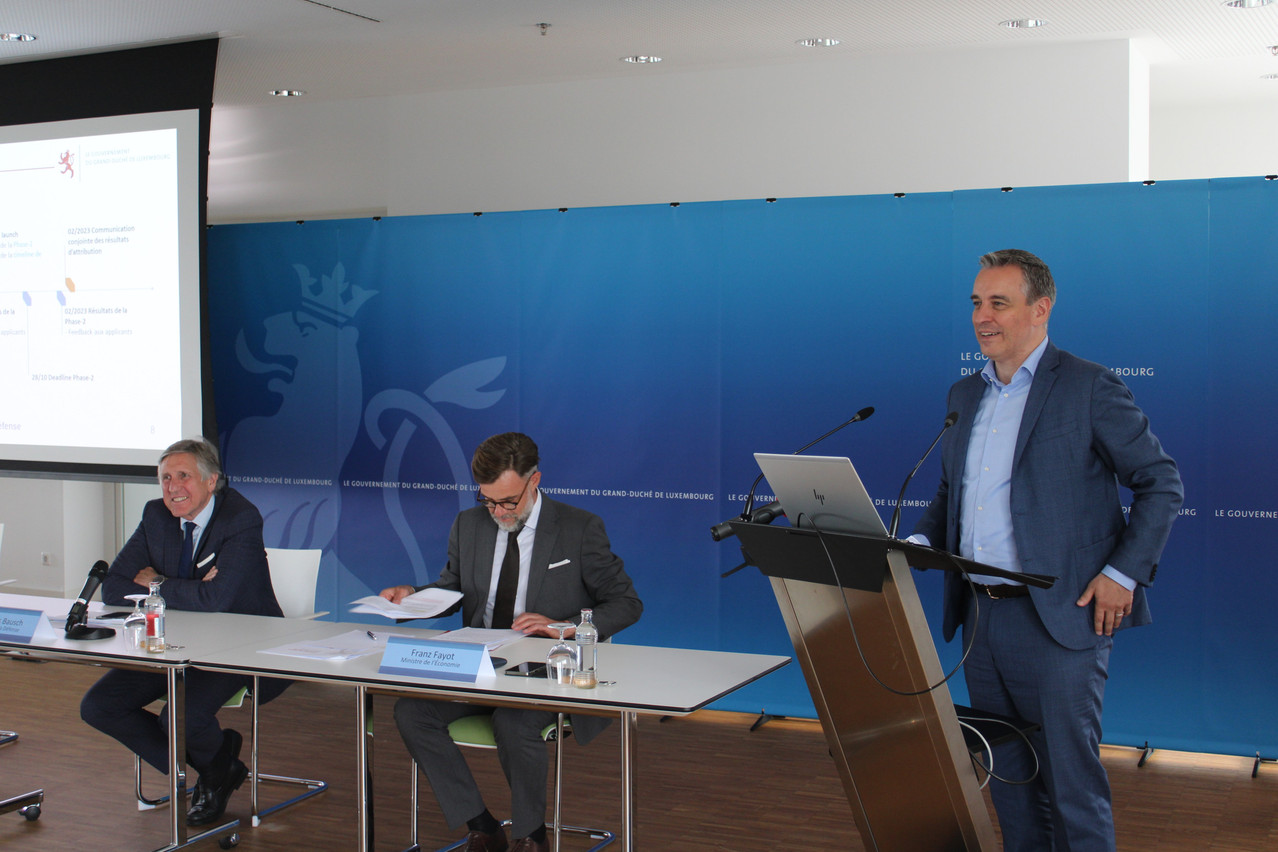The European Union has urged member countries to invest 2% of their defence spending into research and development. Luxembourg in response set up a working group between the ministries of defence, economy, and higher education and research to send out a call for applications.
The team is supported by the national research fund (FNR) and Luxinnovation.
“We have identified nearly 40 Luxembourg companies in the space and materials sector that have the know-how required to participate in this call for projects,” said economy minister Franz Fayot (LSAP) on Friday. “This can therefore help them to obtain visibility and significant support for the development of dual-use technologies and offer them opportunities to engage in the European defense value chain.”
Numerous satellite technology companies in Luxembourg already work with government clients in the field of defence. SES through its US-based subsidiary SES-GS, for example, provides satellite communications capacity to the US military. Companies such as Kleos, Spire and OQ Technology all have government clients in their sights.
“Through the financing of R&D projects, Luxembourg’s defence not only supports the Luxembourg economy and research, but also aims to finance dual-use projects, therefore having both civilian and military applications,” said defence minister François Bausch (déi Gréng).
Only companies in the space and materials industries will be able to apply for the call, which will be managed by Luxinnovation. Private sector businesses but also Luxembourg research centres can apply.
The department of defence will spend up to €3m on the projects selected.
Luxembourg is one of Nato’s members with the lowest defence spending compared to its GDP. All Nato members in 2014 pledged to spend 2% of GDP on defence but the grand duchy is far from reaching that target at 0.6% spending this year and plans to increase these funds to 0.72% by 2024.
Bausch said the 2% target was “neither realistic nor doable” for Luxembourg. He previously called the amount “idiotic” for a country like the grand duchy, which has an outsized GDP in comparison to its small army.
However, Luxembourg ranked 10th among Nato countries in terms of spending per capita in 2021, with 19 other members spending less when measured by population rather than their economies. The grand duchy has the smallest army of all Nato members.
The government in February launched a , aiming to consolidate and advance the grand duchy as a major player in the space and cyber sector for military and civilian use.
